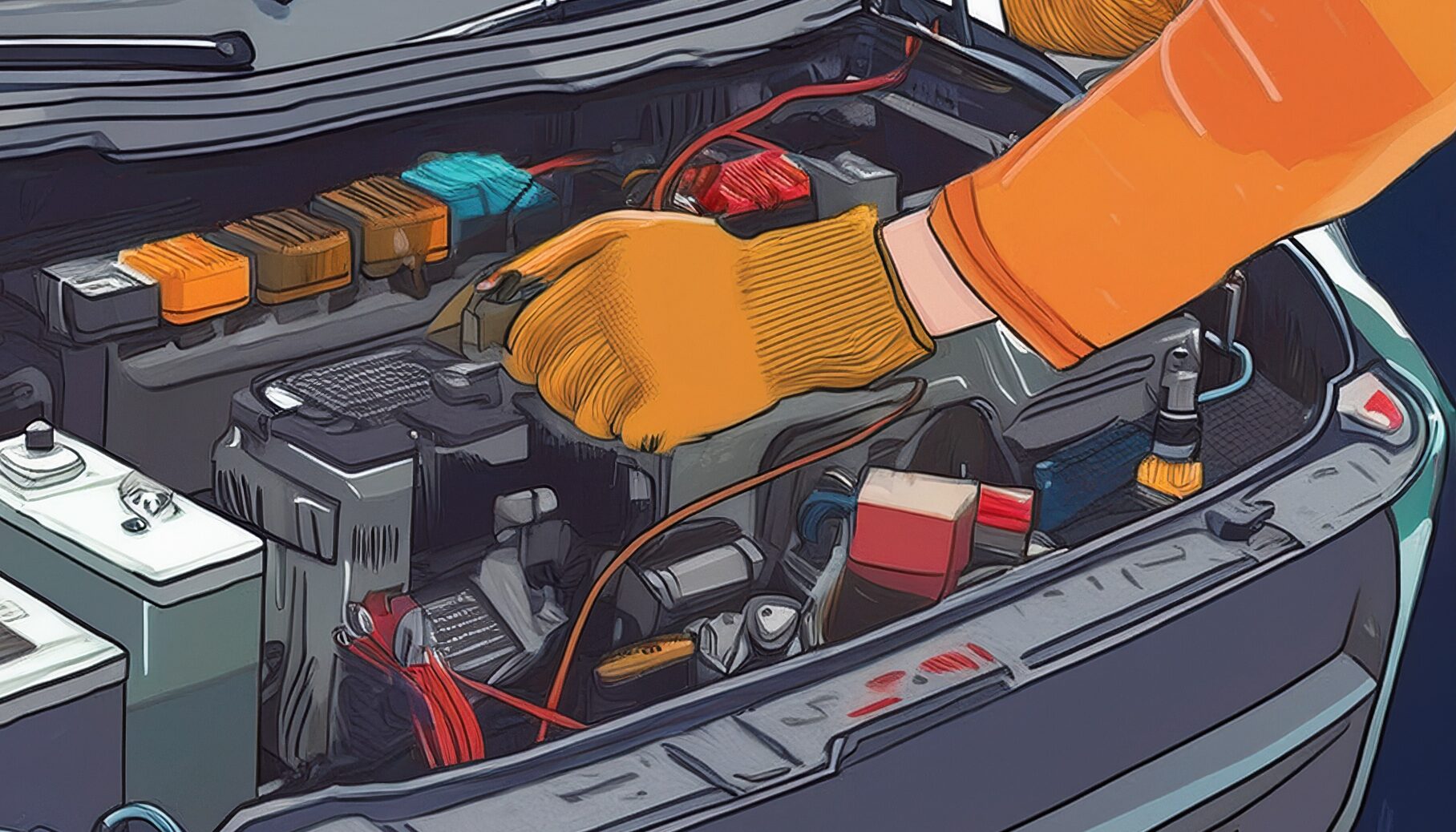1- Introduction
🔋 Your car battery works silently behind the scenes to ensure your engine starts and all electronics operate smoothly, But like all components, it doesn’t last forever, Recognizing the right time to replace your battery can help you avoid unexpected breakdowns and prevent expensive electrical repairs, In this guide, we’ll walk you through the signs, tips, and tests to help you make the right decision at the right time.
🗂️ Table of Contents
2- What Does a Car Battery Do? ⚡
The battery supplies your vehicle with the electricity required to activate essential systems such as lighting, audio, navigation, and HVAC controls, It stores energy and delivers it to the starter motor, which cranks the engine, Without a working battery, your car simply won’t start.
3- Typical Battery Lifespan 🔄
On average, car batteries function effectively for 3 to 5 years depending on usage and environment. Factors like driving habits, weather conditions, and vehicle type can shorten or extend that range, If your battery is over 3 years old, it’s wise to begin monthly checks.
4- Don’t Ignore These Car Battery Warning Signs 🚗
Here are signs your battery might be near the end :
🔹 Slow engine crank
🔹 Dimming headlights
🔹 Dashboard warning light (usually a battery icon)
🔹 Electrical accessories malfunctioning
🔹 Corrosion on battery terminals
🧠 Story : Julie’s headlights were flickering for weeks, One morning, her car wouldn’t start in the middle of winter leaving her late for work and needing a tow.
5- How to Test Your Battery 🔧
You can test your battery using a multimeter, When fully charged, a battery typically reads 12.6 volts with the engine turned off, When the engine is running, it should read 13.7 to 14.7 volts, Anything outside that range might mean it’s time for a new battery or alternator check.

6- Common Causes of Battery Drain 🔋
Here are common reasons batteries die prematurely :
🔸 Leaving lights or accessories on
🔸 Parasitic drain (power draw from electrical systems when the car is off)
🔸 Faulty alternator
🔸 Taking many short trips without long drives in between (your battery doesn’t get enough time to fully recharge)
7- Weather & Battery Health 🌦️
Extreme temperatures affect battery performance, In freezing conditions, battery chemistry slows down, which reduces its power output and makes engine starts more difficult, Excessive heat accelerates fluid loss and may lead to internal wear within the battery, If you live in areas with harsh climates, check your battery more frequently.
8- How to Extend the Life of Your Car Battery with Simple Care 🔋
🧼 Keep the battery clean and dry, Clean off corrosion using a safe mix of water and baking soda to protect the terminals.
🚗 Secure the battery tightly to avoid vibrations.
🔋 Avoid draining the battery with lights or electronics when the engine is off.
9- When to Replace (Not Just Recharge) 🔁
Once your battery crosses the four-year mark and shows signs like slow cranking or dim lights, it’s often more reliable to replace it than risk an unexpected breakdown, Recharging won’t solve deeper internal damage.
10- Choosing the Right Battery for Your Car 🛒
Always follow your manufacturer’s specifications, Consider :
🔹 Cold Cranking Amps (CCA) rating
🔹 Reserve capacity
🔹 Battery size group
🧠 Story : Tom bought a cheaper battery online, It didn’t fit properly, had low CCA, and died within 9 months costing him more in the long run.
11- Final Thoughts ✅
A reliable battery is critical for safe driving, By staying alert to signs of failure and maintaining it regularly, you can avoid surprises and ensure your vehicle stays ready no matter the season.
➡️ Internal link :
🧰 10 Maintenance Checks Every Driver Should Do Monthly
📌 Trusted External Sources (nofollow):

